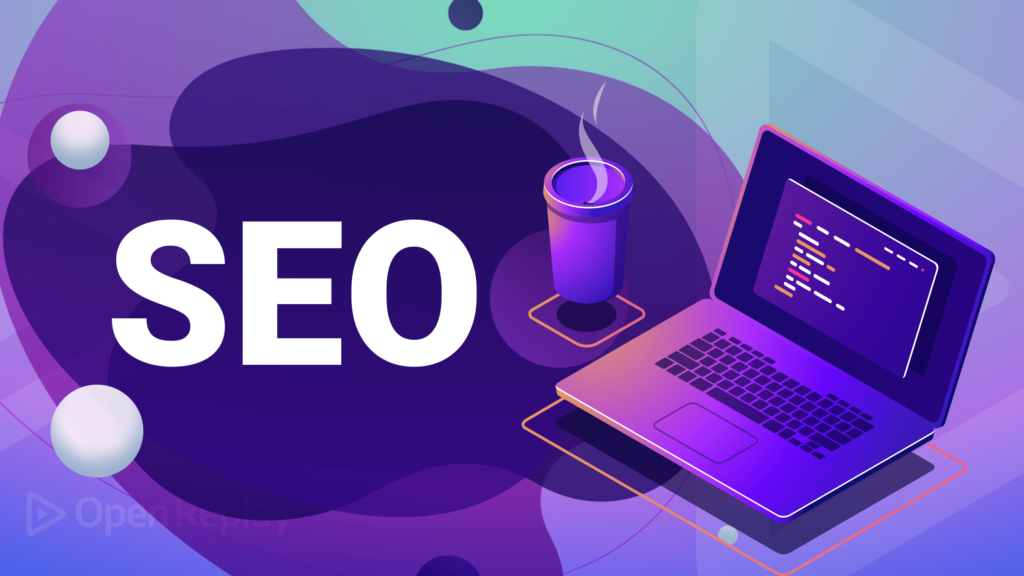Introduction
Search Engine Optimization (SEO) is the backbone of digital visibility. With 93% of online experiences beginning with a search engine, businesses that neglect SEO risk losing valuable traffic, leads, and revenue. SEO isn’t just about ranking higher—it’s about delivering the right content to the right audience at the right time.
This in-depth guide covers:
✔ Key benefits of SEO for businesses
✔ Different types of SEO strategies
✔ Essential SEO tools and technologies
By the end, you’ll understand why SEO is a must-have investment and how to leverage it effectively.
Benefits of SEO
1. Increased Organic Traffic
- SEO helps your website rank higher on search engines, leading to more clicks without paid ads.
- Top-ranking pages receive 31.7% of all clicks (BrightEdge).
2. Higher Credibility & Trust
- Websites on page one of Google are perceived as more trustworthy by users.
- 75% of users never scroll past the first page.
3. Cost-Effective Marketing
- SEO delivers 3x more leads per dollar than paid ads (HubSpot).
- Organic traffic is free long-term, unlike PPC (Pay-Per-Click).
4. Better User Experience (UX)
- Google rewards sites with:
✅ Fast loading speeds
✅ Mobile-friendliness
✅ Easy navigation - Improved UX = Lower bounce rates, higher conversions.
5. Local Business Growth
- “Near me” searches have grown 150%+ in recent years.
- Google My Business (GMB) optimization helps local businesses attract nearby customers.
6. Long-Term Results
- Unlike paid ads (which stop when funding stops), SEO efforts compound over time.
- A well-optimized page can rank for years with minimal updates.
7. Competitive Advantage
- If competitors rank higher, they’re stealing your potential customers.
- SEO helps you outrank them and dominate your niche.
8. Data-Driven Insights
- SEO tools provide keyword trends, user behavior, and competitor analysis.
- Helps refine content strategy and marketing efforts.
9. Higher ROI Than Traditional Ads
- SEO generates 2.75forevery2.75forevery1 spent (Ahrefs).
- Outperforms TV, radio, and print ads in ROI.
10. Supports Other Marketing Channels
- SEO boosts:
✅ Content marketing
✅ Social media reach
✅ Email marketing performance
Types of SEO
1. On-Page SEO
Optimizing elements on your website:
✔ Keyword placement (titles, headers, meta descriptions)
✔ Content quality (depth, relevance, readability)
✔ Internal linking (helps Google crawl pages)
✔ Image optimization (alt text, compression)
Best for: Bloggers, content marketers, e-commerce sites.
2. Off-Page SEO
Improving external signals that boost rankings:
✔ Backlinks (high-authority sites linking to you)
✔ Social signals (shares, mentions)
✔ Guest posting (writing for other sites)
✔ Local citations (business directory listings)
Best for: Brands needing authority and trust signals.
3. Technical SEO
Fixing website infrastructure for search engines:
✔ Site speed optimization (Core Web Vitals)
✔ Mobile responsiveness (Google prioritizes mobile-first indexing)
✔ Structured data markup (helps rich snippets appear)
✔ XML sitemaps (helps Google index pages)
Best for: Developers, large websites, e-commerce platforms.
4. Local SEO
Optimizing for “near me” searches:
✔ Google My Business (GMB) optimization
✔ Local keywords (e.g., “best pizza in [city]”)
✔ Reviews & ratings (affect local rankings)
✔ NAP consistency (Name, Address, Phone #)
Best for: Small businesses, restaurants, service providers.
5. E-Commerce SEO
Specialized SEO for online stores:
✔ Product page optimization (titles, descriptions)
✔ Category structure (easy navigation)
✔ Schema markup (product reviews, pricing)
✔ Avoiding duplicate content (manufacturer descriptions)
Best for: Shopify, WooCommerce, Magento stores.
6. Voice SEO
Optimizing for voice search queries:
✔ Natural language keywords (long-tail, conversational)
✔ FAQ schema markup (answers voice queries)
✔ Featured snippets (voice assistants read these)
Best for: Brands targeting voice search users.
Essential SEO Technologies & Tools
Keyword Research Tools
- Ahrefs – Best for backlink analysis + keyword difficulty.
- SEMrush – All-in-one SEO suite (competitor tracking).
- Google Keyword Planner – Free but limited (for PPC).
- AnswerThePublic – Finds question-based queries.
On-Page Optimization Tools
- Yoast SEO (WordPress plugin) – Checks readability + SEO.
- Clearscope – AI-powered content optimization.
- Surfer SEO – Analyzes top-ranking pages for optimization.
Technical SEO Tools
- Google Search Console – Tracks indexing, errors, performance.
- Screaming Frog – Crawls websites for technical issues.
- PageSpeed Insights – Checks loading speed + Core Web Vitals.
Backlink Analysis Tools
- Moz Link Explorer – Measures domain authority (DA).
- Majestic SEO – Tracks backlink history.
- Ubersuggest – Free alternative for basic backlink checks.
Local SEO Tools
- BrightLocal – Tracks local rankings + reviews.
- Whitespark – Finds local citation opportunities.
- Yext – Manages business listings across directories.
AI & Automation Tools
- Frase.io – AI content research + optimization.
- MarketMuse – AI-driven content strategy.
- ChatGPT – Helps generate SEO-friendly content ideas.
Emerging SEO Trends
✔ AI-Generated Content – Google now indexes AI content if high-quality.
✔ Google’s Helpful Content Update – Rewards people-first content.
✔ Video SEO – YouTube & TikTok videos rank in Google.
✔ E-E-A-T (Experience, Expertise, Authority, Trustworthiness) – Critical for YMYL (Your Money Your Life) niches.
Conclusion
SEO is not a one-time task—it’s an ongoing strategy that evolves with search engine algorithms. Whether you focus on on-page, technical, or local SEO, the goal remains the same: improve visibility, attract quality traffic, and convert visitors into customers.
By leveraging the right tools and technologies, businesses can stay ahead of competitors and adapt to Google’s ever-changing ranking factors.
Ready to boost your rankings? Start with keyword research, optimize your content, and fix technical errors—or partner with an SEO expert to accelerate growth.



